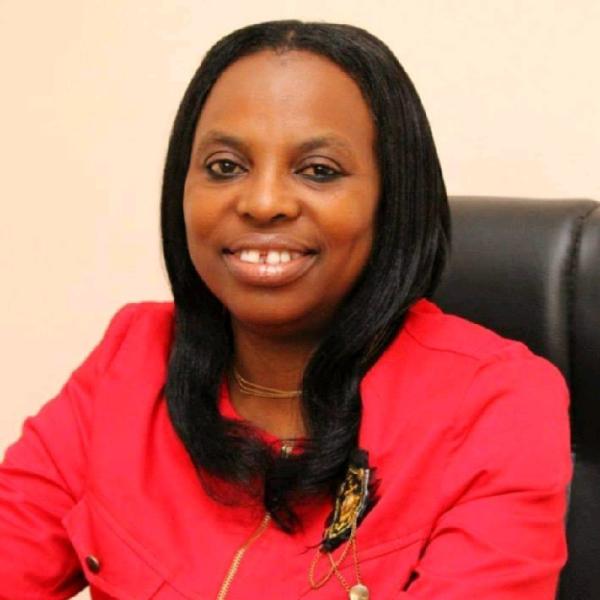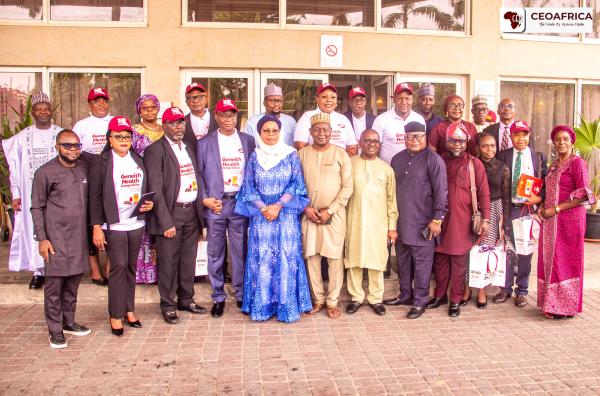
The Vice Chancellor, Chrisland University, Prof. Chinedum Peace Babalola has advised families and communities in Nigeria to avoid unfair treatment against the girl child, as was the case in the past. The don, who is the first female professor of Pharmacy to become a vice chancellor in Nigeria, gave the counsel in commemoration of this year’s International Day of the Girl Child, which marks ten years of its celebration.
Speaking in an interview with CEOAFRICA today, Tuesday, October 11, 2022, the African Union Laureate explained that she is always grateful to her parents, who never downplayed the importance of girl child education and empowerment. Recall that the first female Fellow, African Academy of Science (FAAS) had two sisters, whose records are indelible. Her immediate younger sister (now late) retired last year as an Assistant General Manager of the Federal Mortgage Bank of Nigeria.
Citing the example from her family, she noted that the girl child is more beneficial to the society, when empowered. This is because the girl is more conscious of the home than the boy. The first female pharmacist to become Fellow of the Nigerian Academy of Science observed that male children can be away from home for a long time without being bothered, developing another man’s land; but the case is different with their female counterpart.
According to the lead winner of the Mac Arthur Foundation one-million-dollar research grant (approx.), “I weep when I see men who despise their wives simply because she gives birth to female children. First, children are special gift from God. In addition, the husband, or the man, is the determinant of the baby’s sex. I hope men will understand that. Having said that, it is better to make them understand that women are now the drivers of development.”
“In most families today, the girl child takes proper care of the parents more than the boy. Boys can stay away from home for a long time, without being bothered, but that is not the case with girls. I have sisters and I also have a brother, so I know what I’m saying. Moreover, I have children too. So any society that relegates the girl child or treats her unfairly does not welcome development. I am happy that a day like this is set aside to look at some of the roles of the girl child as well as raise awareness on the possible ways of treating her with equity. Some societies accuse widows of killing their husbands, such act is not encouraging at all,” she said.
The international Day of the Girl Child dates back to December 2011, when the United Nations General Assembly chose October 11 for the event. The first of its kind was held in 2012, ten years ago. According to the UN, in 1995 at the World Conference on Women in Beijing, countries unanimously adopted the Beijing Declaration and Platform for Action – the most progressive blueprint ever for advancing the rights of not only women but girls. The Beijing Declaration is the first to specifically call out girls’ rights.
On December 19, 2011, United Nations General Assembly adopted Resolution 66/170 to declare October 11 as the International Day of the Girl Child, to recognize girls’ rights and the unique challenges girls face around the world. The International Day of the Girl Child focuses attention on the need to address the challenges girls face and to promote girls’ empowerment and the fulfilment of their human rights.
The UN further highlights the empowerment of women and girls as a way of achieving the Sustainable Development Goals of 2030. The tenth anniversary of the International Day of the Girl Child, that is 2022 edition, is being celebrated under theme, “Our time is now—our rights, our future”. The aim, according to the UN, is to stress the need for the girl child to be empowered, as her empowerment holds prospect to the world’s development. It is estimated that there are about 600 million adolescent girls in the world.
Some of the concerns raised by the international organisation include that, about 10 million girls could be at the risk of child marriage, due to school closure and economic situation, no thanks to the pandemic. It also noted that about 25% of girls aged 15 to 19 are not being educated or trained, neither are they employed, compared to 10% found in boys, across the globe. In addition, about 72 % of girls are at the risk of sexual exploitation. These and more shocking stories call for urgent action to salvage the future of over 1.1 billion girls in the world.
The United Nations Educational, Scientific and Cultural Organization (UNESCO), the UN women, United Nations Children’s Fund (UNICEF), just to mention few, have called for deliberate action for the girl child. The United Nations Development Programme (UNDP), posted a video titled, “All girls have the right to a safe, educated, and healthy life,” as a way of drawing attention to the needs of the girl child.






















